It seems like you can't beat Aldi's prices! We found a bunch of reasons the supermarket can keep its prices at rock bottom.
14 Reasons Why Aldi’s Groceries Are So Cheap
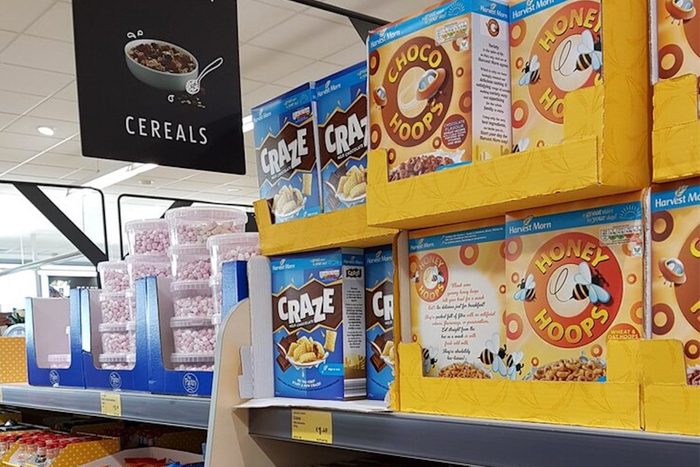
Aldi avoids brand names
Why is Aldi so cheap? At most supermarkets, you’ll find tons of name-brand items, but at Aldi, a whopping 90% of the products are private label. By avoiding brand names, Aldi can skip going through another company and offer you cheaper prices. Make sure you stock up on these value items from Aldi the next time you visit.
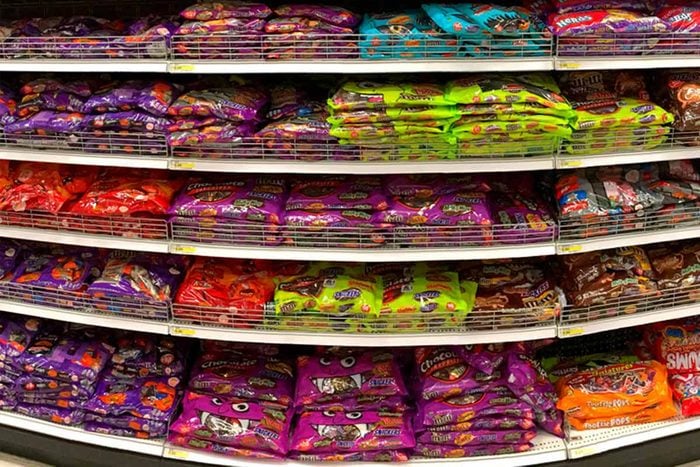
Many name-brand products are overstock
The few name-brand products that Aldi does stock tend to be either discontinued or overstock products. This lets Aldi purchase products at a reduced price, and in turn sell them at a lower cost to customers.
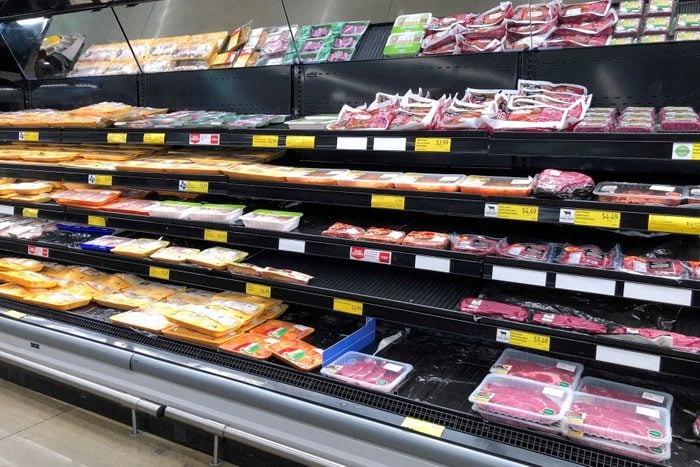
They source meat from regional farms
You’ll find that meat is cheaper at Aldi than at competing stores, too. They typically purchase meat from regional farms. Buying local usually means the company can pay less for the transportation of the product. In return, this means a lower cost for customers.
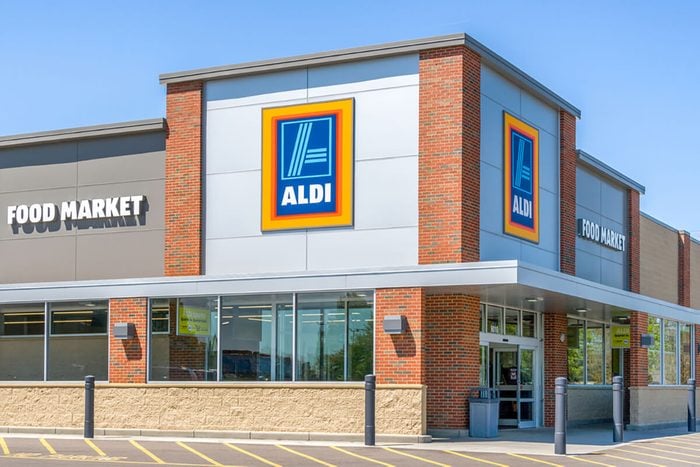
They have a small selection, which means smaller stores
Did you know that Aldi only offers a selection of 900 core products? Since they don’t have national brands, they have less to warehouse and display in the store. This means having smaller stores compared to most other grocery retailers, and in return, lower rent!
While Aldi is pretty close to being perfect, there are some things you shouldn’t buy at Aldi.
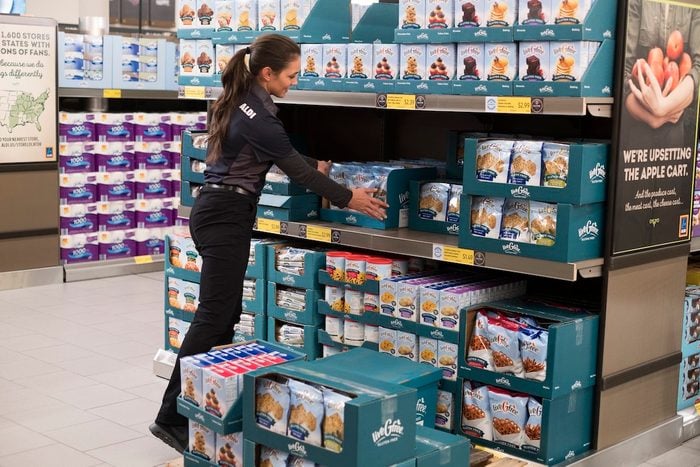
They take less time restocking shelves
Aldi’s design was specifically made for minimal stocking and upkeep. Other stores may have beautiful displays, but employees have to constantly restock them. At Aldi, products are inside boxes or simply stacked on each other, making it much easier for employees to restock. Here are a few things that Aldi employees wouldn’t tell you.
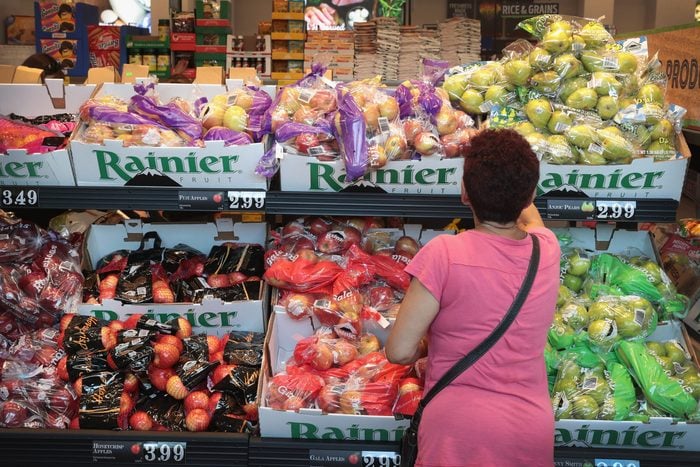
They use boxes, milk racks and pre-packaged produce
Boxes aren’t the only way Aldi saves time (and money). Products such as milk and even produce help reduce the upkeep at an Aldi store. Milk already comes in racks, and produce is pre-packaged and ready for checkout.
We’ve got the truth to debunk some popular Aldi rumors, like not having organic options, so any hesitation for shopping at Aldi can be thrown out.
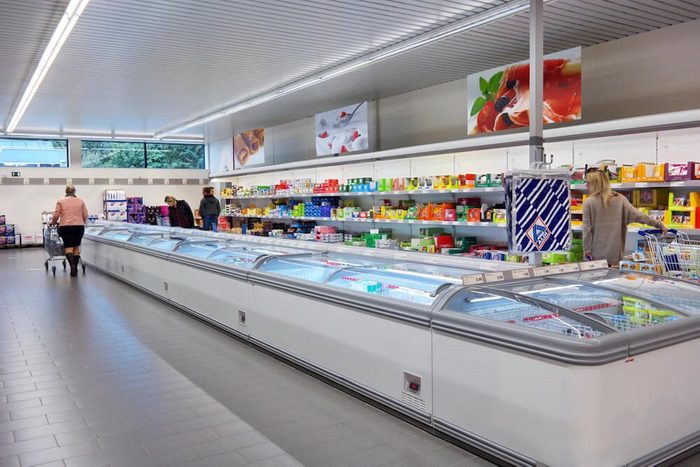
They use energy-efficient store design
Aldi recently remodeled some of its stores to save money. They used recycled materials, energy-saving refrigeration and LED lighting. A modern design brings natural light into the store, making it environmentally friendly, too.
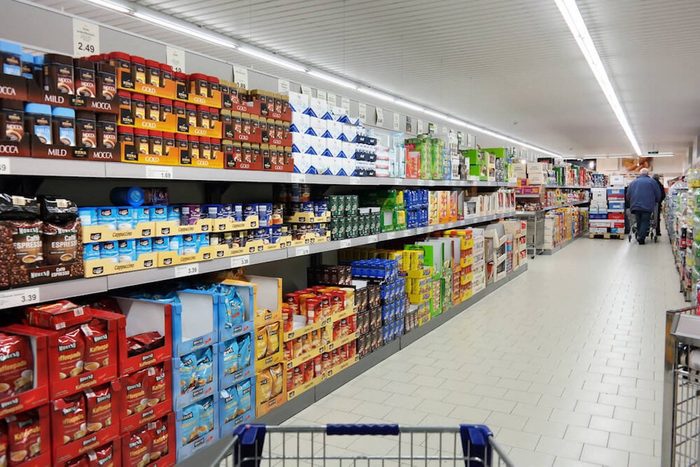
They have minimal decoration
While stores like Trader Joe’s may also offer cheap items, Aldi uses a cost reductive trick that allows them to be a top ranking budget friendly store. Unlike Trader Joe’s custom murals and fancy packaging, Aldi has embraced a minimalist decorating. By skipping expensive embellishments, Aldi is able to pass even more savings on to its customers.
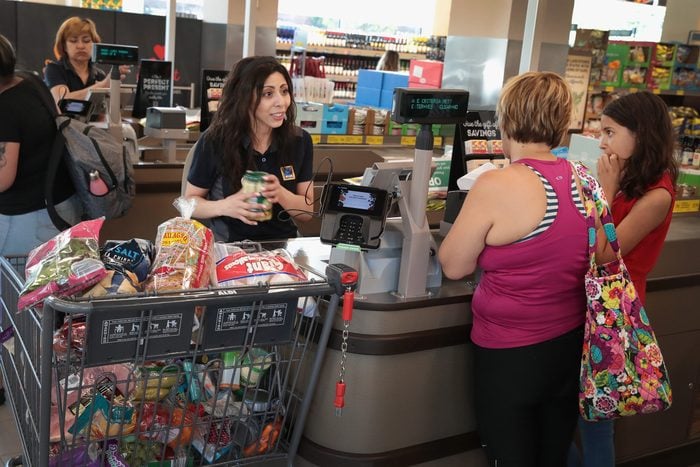
They have fewer workers
Aldi will often schedule only two or three staff members at a time. That’s nothing compared to the number of employees you’ll see at other markets. With the way Aldi is designed, not as many workers are needed to stock the shelves or keep things in order. This also allows the store to pay those employees a decent paycheck.
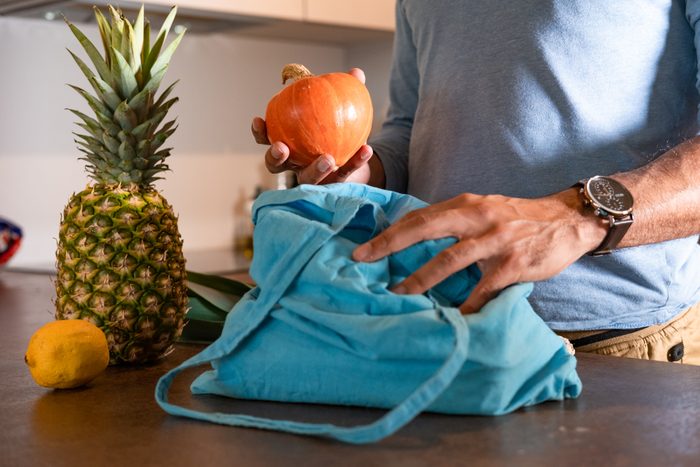
Aldi customers bring their own bags
Aldi doesn’t bother buying as many plastic bags as other stores, thanks to their bag policy. If you end up using an Aldi plastic bag, you’ll have to pay for it. This is to encourage customers to bring their own bags—keeping the store a green environment and putting money back into customer pockets.
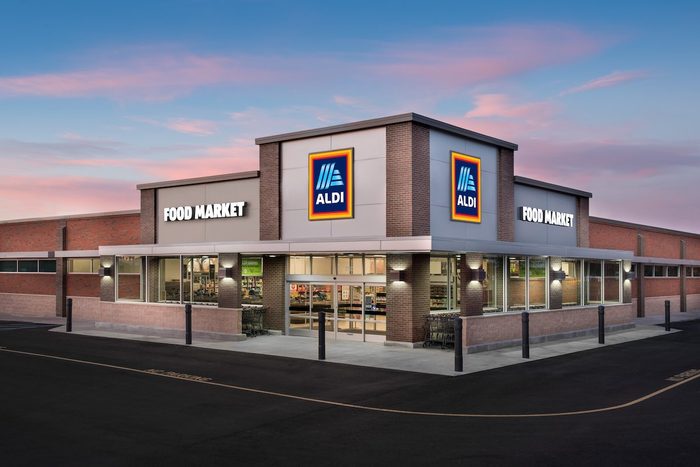
They don’t have a ton of TV ads
Have you ever seen a Walmart or Target ad on TV? Yes. Aldi? Probably not. Although Aldi does have a small television campaign, advertisements on television aren’t seen as frequently as other popular brands. This means Aldi has extra money to save for what they do best—bringing you cheap groceries.
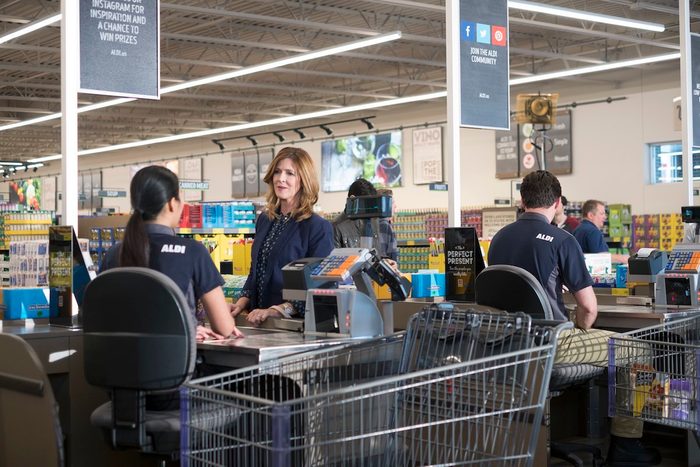
They have reduced hours
While many grocery stores are open for 12, 18 or 24 hours a day, most Aldi locations are only open for 11 hours or less. This allows the chain to save on wages and reduces operational costs. Get to know everything about Aldi’s Saver tags and make your next trip as easy as pie.
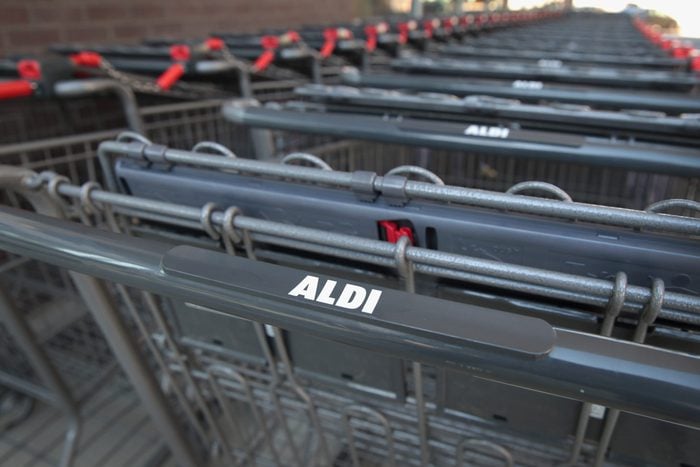
They have a smart shopping-cart rental system
Aldi use a renting system where you must put a quarter in a shopping cart in order to unlock it and use it. This gives people an incentive to return the cart, which means the retailer doesn’t need employees to bring the carts back. Didn’t know about that? Well, here are five things to know before shopping at Aldi.
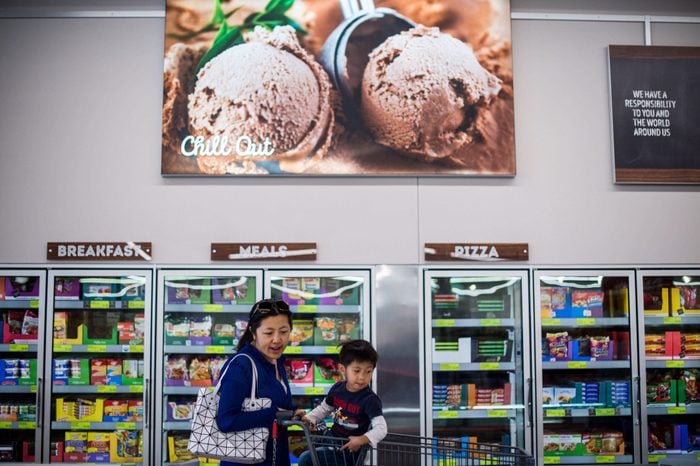
They’re about consumers, not profits
Unlike most supermarkets, Aldi doesn’t charge suppliers for shelf space and keeps their terms simple. According to Australian newspaper The New Daily, Aldi claims it wants “to suck the profitability out of the [supermarket] industry in favour of the consumer.” Every decision the company makes always has the customer in mind, and it pays off.
